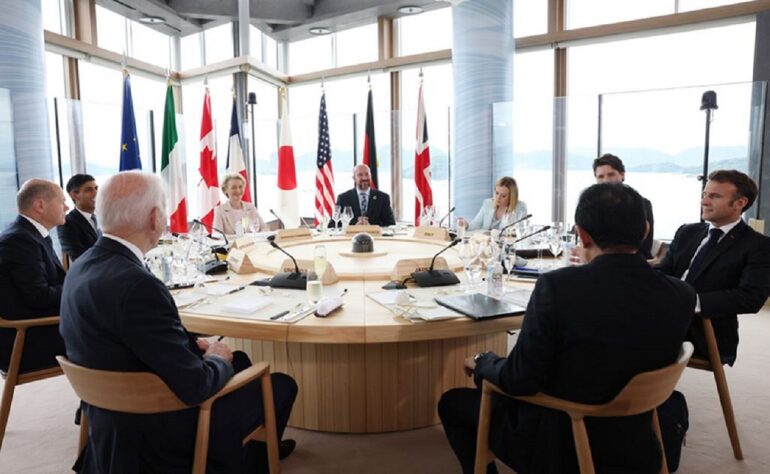TL;DR:
- G7 officials will hold their first working-level AI meeting next week.
- The meeting aims to address challenges posed by generative AI tools like ChatGPT.
- Topics of discussion include intellectual property protection, disinformation, and governance of AI.
- The EU’s progress in enacting major AI legislation is inspiring other governments.
- Japan, as the G7 chair, will lead discussions on the responsible use of generative AI.
- The meeting aims to provide recommendations for heads of state by year-end.
- G7 leaders call for international technical standards to ensure trustworthy and democratic AI.
- The G7 AI working group will seek input from the OECD.
Main AI News:
In a significant development, government officials from the Group of Seven (G7) nations are set to gather next week for a crucial meeting to tackle the issues posed by generative artificial intelligence (AI) tools, including ChatGPT. This high-level discussion is part of the recently established “Hiroshima AI process,” an intergovernmental forum dedicated to deliberating on the rapid growth and implications of AI technologies.
Scheduled for May 30, the first working-level AI meeting will bring together representatives from G7 countries, such as the United States, the European Union, and Japan. Among the key topics on the agenda are intellectual property protection, combatting disinformation, and determining the appropriate governance framework for this transformative technology, as highlighted by Takeaki Matsumoto, Japan’s communications minister.
The timing of this meeting is critical as regulatory bodies around the world grapple with assessing the impact of widely-used AI services like ChatGPT, developed by Microsoft-backed OpenAI. Encouragingly, the European Union is progressing towards enacting pioneering legislation on AI, thereby inspiring other governments to contemplate the necessary rules and regulations for AI tools.
Assuming the role of G7 chair this year, Japan aims to take the lead in fostering discussions on the responsible use of generative AI technology. Matsumoto expressed optimism that the forum would generate valuable recommendations for heads of state by the end of the year.
During the recent Hiroshima G7 summit, leaders stressed the importance of developing and adopting international technical standards to ensure that AI remains trustworthy and aligned with shared democratic values. To achieve this, the G7 AI working group will actively seek input from the Organisation for Economic Co-operation and Development, according to Matsumoto’s statements during a regular press conference.
As the global community comes together to navigate the challenges and opportunities presented by AI, the upcoming G7 AI regulation meeting marks a significant step towards establishing a cooperative and forward-thinking approach to governing this powerful technology. With countries joining forces to shape the future of AI, a harmonized framework that prioritizes responsible innovation and safeguards societal interests is within reach.
Conlcusion:
The upcoming G7 meeting on AI regulation signifies a significant development in the market. The discussions around challenges posed by generative AI tools and the establishment of international technical standards indicate a growing recognition of the importance of responsible and ethical AI practices. The EU’s progress in enacting major legislation further emphasizes the urgency for governments to address the regulatory landscape for AI.
This evolving market environment opens up opportunities for businesses involved in AI technologies, particularly those focusing on intellectual property protection and disinformation mitigation. As governments collaborate to shape the future of AI, market players should stay informed about emerging regulations and be prepared to adapt their strategies accordingly to align with evolving governance frameworks and maintain compliance.

